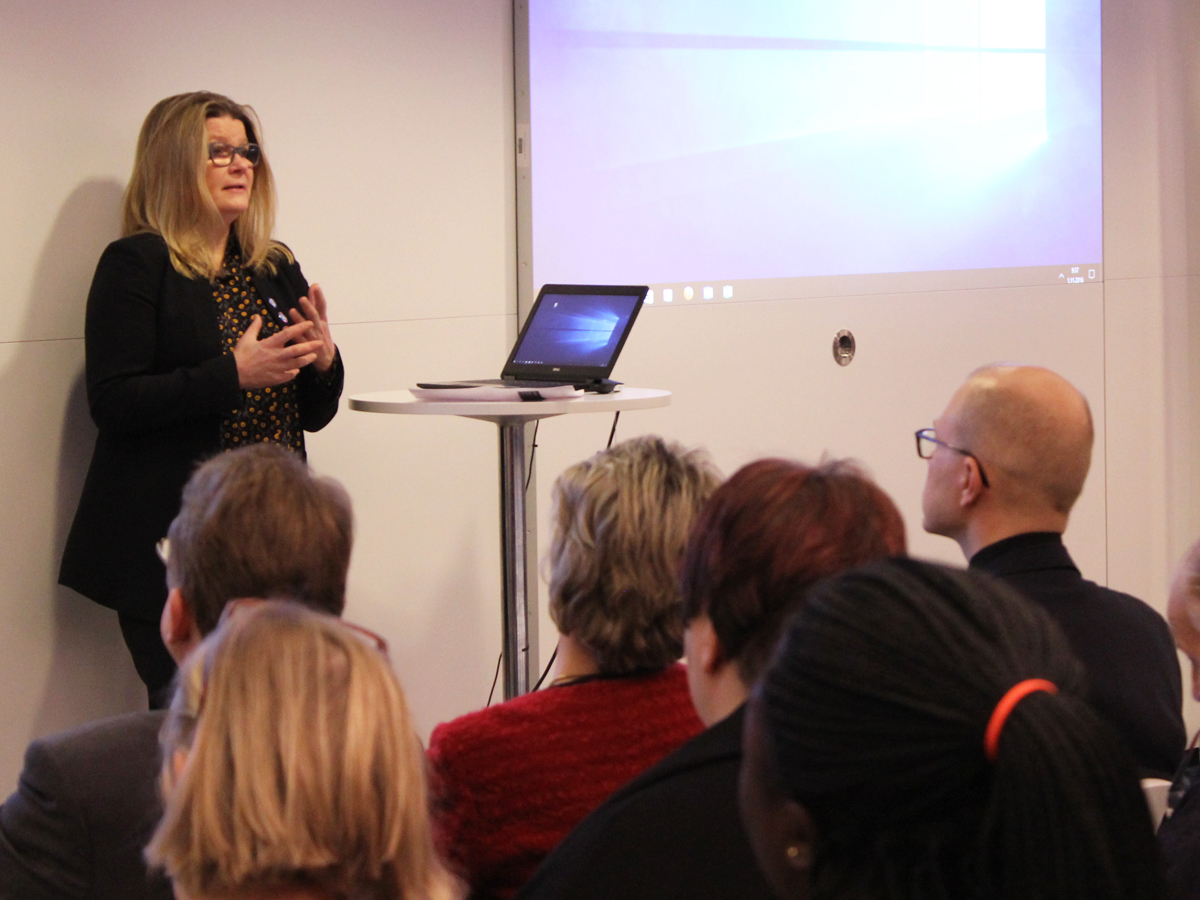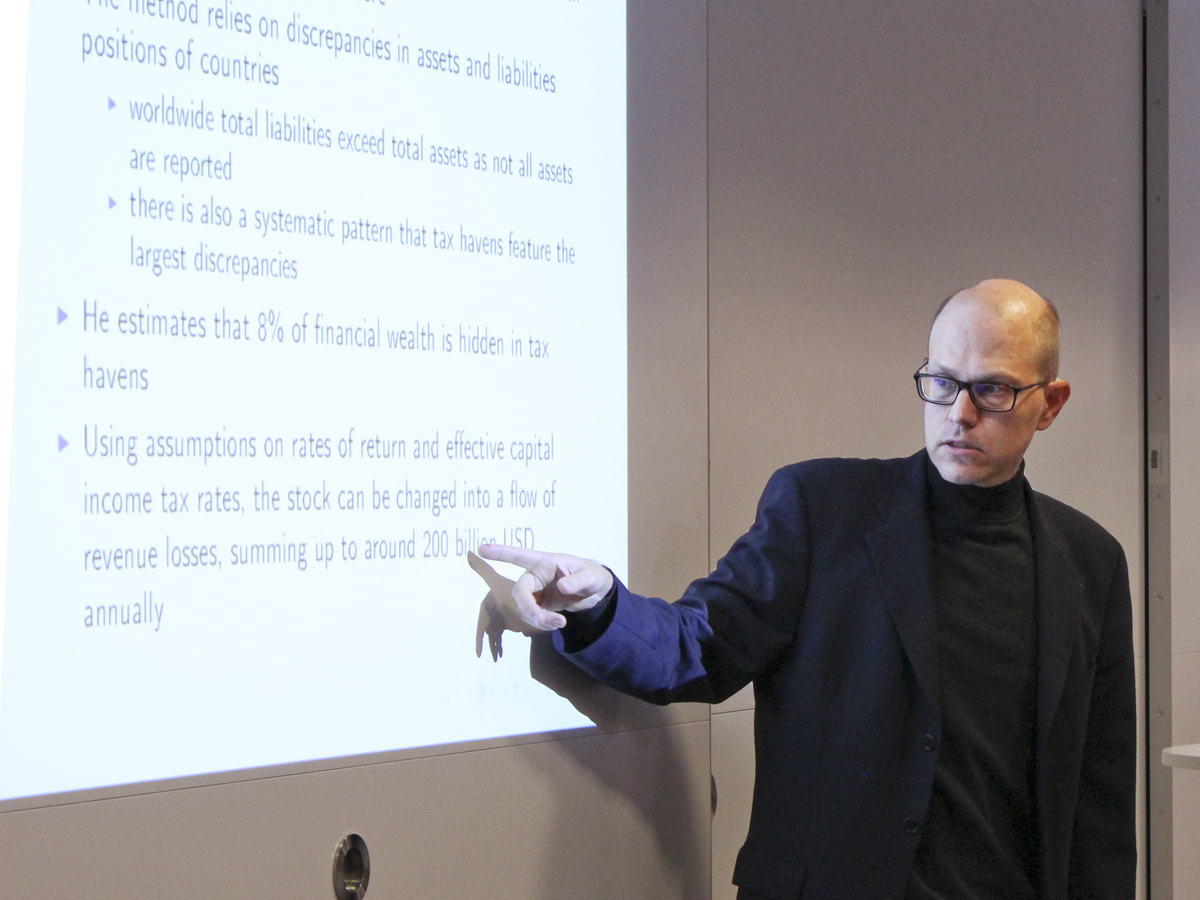Blog
Effective taxation policies to promote equitable growth and development
Taxation is a crucial source of revenue for countries around the world and plays an important role in development efforts. In order to truly foster equitable growth in these contexts, policies must consider taxation alongside other funding sources and private sector development while also taking into account distributional effects.

To take stock of this important issue, UNU-WIDER and the Ministry for Foreign Affairs of Finland (MFA) organized a policy seminar in Helsinki this month to consider current knowledge on tax policies in developing countries and directions for the future. In attendance were representatives from the Finnish government as well as practitioners and researchers from local organizations and universities.
Satu Santala, Director General of the Department for Development Policy at MFA, opened the seminar by noting the increasing recognition globally that aid alone cannot solve the problem of development. For many developing countries, tax is a sustainable way of raising revenues to fund public services and basic infrastructure — it thus promotes development.
Research needs to inform policy
As UNU-WIDER Director Finn Tarp outlined in his presentation, the policy debate on taxation in developing countries has in recent years looked more closely at enhancing and reforming tax systems. The various goals of taxation, however, may conflict, sometimes facing trade-offs. For example, the tax system which is most effective at raising revenue may also have undesirable distributional implications. Proper economic analysis is required to better understand where the tax burden lies, as only solid research can demonstrate a particular tax’s effects on the distribution of income.
Certain conditions are also required for taxation policies to be effective, including: a monetized economy, literacy and accounting skills, in addition to public acceptance and political will. Tarp underlined that pragmatism and country-specific knowledge is required in such policy-making, noting the ongoing need for economic analysis at the country level.
Tax research collaboration: the case of MFA
From a donor country perspective, MFA’s Ambassador of Tax and Development Hanna Rinkineva spoke about Finland’s current agenda, in particular its action programme on tax and development for 2016-19, which was launched earlier this year. Research is a core focus of the programme with one core objective being to use reliable country-specific research and analysis to identify effective measures for building taxation capacity, as well as for curbing illicit financial flows.
Rinkineva made note of the value of collaboration between MFA and UNU-WIDER, which has the potential over coming years to support MFA’s action programme. Insight stemming from UNU-WIDER’s project on the economics and politics of taxation and social protection will be of particular interest to this end.
Data and analysis can bring concrete results

Very little is currently known about how taxes or tax allowances impact small- and medium-sized enterprises’ taxable income. Recent UNU-WIDER research in South Africa shows that firms tend to bunch at an income level just below the threshold at which their tax rate would increase. A question that still needs answering is whether this clustering results from real economic activity, such as sales, employment, or investment — or from evasion? Understanding the actual impact of tax policies can pave the way for using the tax system to create productive incentives. In the same way, studies that look at the entire tax and benefit system through microsimulation can down the road lead to better social protection systems.
At the event Non-Resident Research Fellow Jukka Pirttilä also discussed UNU-WIDER’s ongoing research, which can help policy makers improve tax systems in development contexts. Capital flight (see his recent blog on the topic), the impacts of taxation on firm behaviour and growth, as well as tax-benefit microsimulation are all current research themes at the Institute. As he underlined in his presentation, further study is vital, as it can provide decision makers with the information needed for creating effective tax policies.
Transparency is key
Further study can provide the information needed for creating effective tax policies.
Public spending and revenues need to be transparent, UNU-WIDER’s Deputy Director and Chief Economist Tony Addison explained during the seminar. Since governments have responsibilities and duties, including taxation, systems must be in place to express and resolve disputes and grievances. Transparency is key to such accountability. International data sources, such as the Government Revenue Dataset, can help in this aim. Addison highlighted the importance of timely and accurate revenue reporting in addition to analysis. In his view, the capacity to carry this out in-country should be fostered to promote development, as such capacity can over the long term support government agendas.
Effective policy-making requires greater understanding and collaboration
Bringing together these diverse views on tax policies in developing countries reveals the challenges involved in effective policy-making. Greater understanding based on concrete, reliable data and analysis is needed to implement effective tax policies. Collaboration with partner institutions — such as the Ministry for Foreign Affairs of Finland, or the National Treasury of South Africa — is one way that UNU-WIDER stays in touch with ongoing international priorities and activities in its aim to promote sustainable and equitable development for all.
The views expressed in this piece are those of the author(s), and do not necessarily reflect the views of the Institute or the United Nations University, nor the programme/project donors.
 Join the network
Join the network


